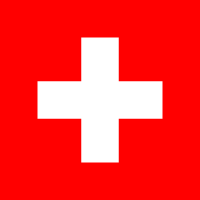Switzerland accuses Israel of breaking international law in Gaza
Tuesday, July 4, 2006
| |
This page has been automatically archived by a robot, and is no longer publicly editable.
Got a correction? Add the template {{editprotected}} to the talk page along with your corrections, and it will be brought to the attention of the administrators. Please note that the listed sources may no longer be available online. |
The Swiss government has said Israel has "not taken the precautions required of it in international law" in their offensive in Gaza. The Federal Department of Foreign Affairs believes Israeli actions "are to be seen as forms of collective punishment."
Israel has said their operation in Gaza is to free a kidnapped Israeli soldier.

Switzerland, the state where the international convention on human rights, the Geneva Conventions, were signed, claims it is neutral in international affairs.
The rules, which Switzerland say Israel has broken, prohibit the deliberate targeting of services, including water and electricity, which are essential to the civilian population. On June 28 Israeli forces destroyed a power station that provided most of the power to residents of the Gaza Strip.
"There is no doubt that Israel has not taken the precautions required of it in international law to protect the civilian population and infrastructure," said a Swiss Foreign Ministry Spokesman
"The destruction of a power station, the attack on the offices of the Palestinian prime minister, the arbitrary arrests of a large number of democratically-elected representatives of the people and ministers... cannot be justified," he continued.
The Israeli ambassador to Switzerland in Bern, Aviv Shir-On, replied to the Switzerland statement. "We are disappointed that the Swiss government did not issue such statements when Israel's civilian population was constantly under attack from the Gaza Strip," he said.
It is not the only time the Swiss government has commented in the midst of Middle Eastern turmoil.
Earlier this year, the 2006 Swiss President Moritz Leuenberger said the international block on funding to the Palestinian authority was a mistake, a claim Israel rejected.
Leuenberger said that the newly elected Hamas government should have been given the chance to prove it could work, a statement echoed by some aid agencies. Israel, the EU, and the United States have described Hamas as a terrorist organisation.
Humanitarian concerns
editThe statement from Switzerland comes amid concern among aid agencies at the humanitarian situation in Gaza. UNICEF have said there have been elevated levels of stress and trauma in young children.
The World Health Organization reported that essential medical supplies have run low and doctors and nurses have found it hard to get to their workplace. Israel defence forces have put restrictions on movement in Gaza.
These agencies have expressed concern that the military operation by Israel could create serious humanitarian consequences for people living in the region.
The power station that was destroyed by the Israeli forces on June 28 provided 43 per cent of Gaza's electricity. Around 700,000 people have been affected by the power cuts.
Water supplies have also been badly hit as not all water pumps can continue to work normally, and there is a lack of gasoline and other fuels, according to the Swiss government.
In response to the situation, the Swiss government has earmarked one million Swiss Francs for essential medical supplies for the civilian population in Gaza.
Switzerland also gave one million Swiss Francs for medicines in June 2006 through the Swiss Agency for Development and Cooperation (SDC).
A Swiss expert has been deployed to Gaza to ensure the smooth running of the humanitarian operations.
Sources
edit- Federal Department of Foreign Affairs (Switzerland). "Switzerland calls on Israel to uphold international humanitarian law" — Federal Department of Foreign Affairs (Switzerland), July 3 2006
- Imogen Foulkes. "Switzerland decries Gaza campaign" — BBC, July 3 2006
- "Swiss urge Israel to respect humanitarian law" — Swissinfo, July 3 2006
